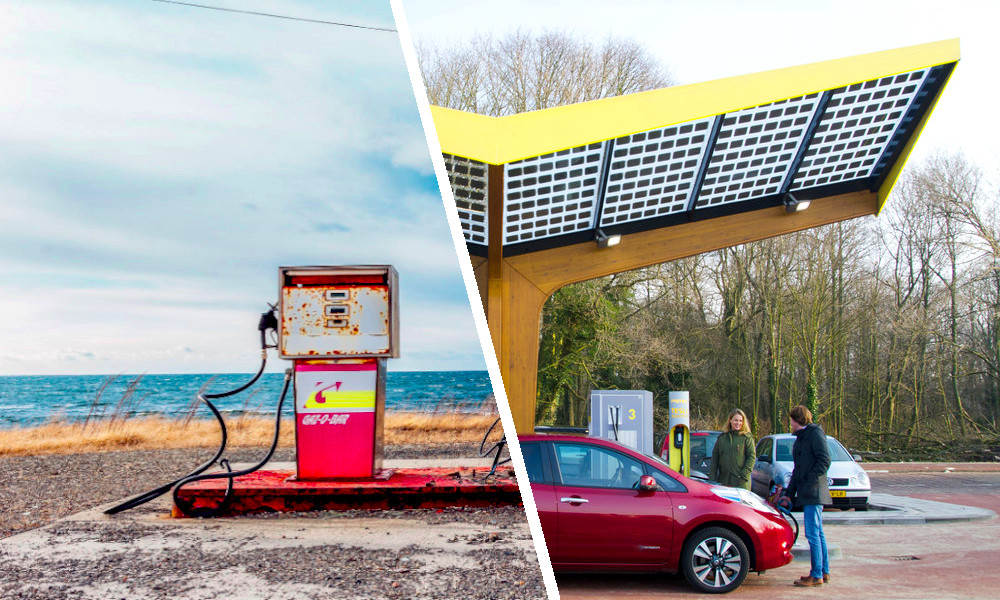
From 2023, there will be more charging stations than petrol stations

Let's go. The stations are sprouting like mushrooms and we are crumbling these days under the announcements of openings. To the point that they could very quickly supplant the last service stations of which there were only 11,068 sites in France at the end of 2018. Knowing that 80 had closed the same year, continuing this trend, we are already below the 11 mark. 000 while the country has 50,000 charging points. Yes, but the distribution of these leaves much to be desired. While startups and large groups are in the process of replacing old pumps. Are we counting?
This consortium has planned the construction of 7,000 stations in 24 countries in Europe by 2025, knowing that it already has 388 charging points in France. Its latest announcement does not specify the number of future French terminals but indicates that the stations to come will also be positioned " near the big cities and on the frequented national roads ". Above all, Ionity plans to double the number of terminals in each of its stations, from 4 outlets to 7 on average, which ensures the loyalty of frequent travelers.
Travel to the capital city of the historical Burgundy region – Dijon, completely hassle-free with our new station in Troyes Sud, France – on the A5 route. Enjoy the ride. See where else we can take you >> https://t.co/w6zPl9Kd2v #evcharging #emobility pic.twitter.com/OdJYcPstOW
— IONITY (@IONITY_EU) December 7, 2021
It will also be necessary to reckon with the network of the (brand new) startup Electra, which plans to set up 1,000 ultra-fast charging stations in France by 2030, of which around fifty will be operational within a year . For once, these French know our territory and also target large agglomerations. Finally, the R3 (Rapid Recharge Network ) opened its first station near Lille this month and is targeting around fifty sites in 2022. Launched by the terminal manufacturer DBT , this network offers payments by bank card, without subscription.
Pump or caddy? All these players will therefore have a thousand stations in 2022. But we will have to add those already existing, in particular from the Avia and Izivia networks, Total's competitors who are also equipping themselves ( BP has around thirty connected stations , for example example)… But above all, as with fuel, the response from supermarkets is coming: Leclerc has started deploying 5,000 outlets by 2022, and as many before 2025. To date, 239 supermarkets are equipped with them. Not to be outdone, its competitor Carrefour has just communicated its intention to install 2,000 charging points before 2023 when the group already has 76.
We will approach 10,000 recharging stations before 2023 while the number of purely dedicated petrol stations continues to decline. Rising sales of electric vehicles will provide the fresh air this sector has been waiting for, and new competitors are sure to emerge by then. We take the bets.

